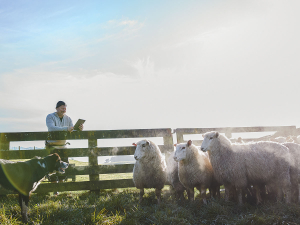Fonterra’s exit from Australia ‘a major event’
Fonterra’s impending exit from the Australian dairy industry is a major event but the story doesn’t change too much for farmers.
 The increases have come even though the agricultural sector facing a raft of challenges in the past two years. Photo Credit: Paul Sutherland Photography.
The increases have come even though the agricultural sector facing a raft of challenges in the past two years. Photo Credit: Paul Sutherland Photography.
OPINION: The recent Federated Farmers / Rabobank 2024 Farming Salaries Report revealed strong growth in farm salaries over the past two years.
The numbers speak for themselves: weighted average salaries rose by 11% for dairy sector roles, by 17% for sheep and beef roles, and by 14% for arable roles.
The increases have come even though the agricultural sector facing a raft of challenges in the past two years – farm owners have been facing higher input costs and interest rates. Despite this, farm employers across the dairy, sheep and beef, and arable sectors have continued to invest strongly in one of their greatest assets – their staff.
Since 2022, the average salary for a farm worker has increased by $7,480 to $71,411 and the weighted average annual salary across the 13 surveyed on-farm position categories has grown by 13%.
And for some more senior roles, the increases have been significantly higher: the average salary for a dairy herd manager is up 19% to $74,185. A sheep/beef farm manager is earning an average 22% more than two years ago ($88,381) and the average income for an arable farm manager is up 28% to $101,264.
As Federated Farmers points out, the increases are impressive, especially considering all the headwinds farmers have contended with over the past two years which have included Covid, severe weather events, production-suffocating red tape, inflation and roller-coaster commodity prices.
The report also highlights strong growth in Total Package Values (TPV) for farm employees. The average TPV for someone working in the sheep and beef sector rose to $76,296, nearly $3,700 more than the salary.
The average weekly hours worked on farms is below the International Labour Organisation’s recommended maximum standard weekly total of 48 hours. The average number of hours worked by a permanent dairy staff member was 46.3 hours. On a sheep and beef farm it was 44.4 hours and on an arable farm 46.3 hours.
These impressive statistics show that NZ agriculture remains an attractive workplace for both locals and migrants, and farm owners are dedicated and fair employers.
Finally, it means careers in NZ agriculture are not only satisfying, but also pay-competitive.
The Meat Industry Association of New Zealand (MIA) today announced that Chief Executive Officer Sirma Karapeeva has resigned from the role.
The winners of the 2026 Hawke’s Bay/Wairarapa Dairy Industry Awards were announced at the annual awards dinner held at Copthorne Solway Park in Masterton on Thursday evening.
Environment Southland is welcoming this week’s decision by the Environmental Protection Authority (EPA) to approve the release of Blaptea elguetai, a leaf‑feeding beetle that will help control the highly invasive Chilean flame creeper.
This March, the potato industry is proudly celebrating International Women’s Day on 8 March alongside the International Year of the Woman Farmer, recognising the vital role women play across every part of the sector — from paddocks and packhouses to research, leadership, and innovation.
Fruit trader Seeka posted a record profit and returns to shareholders in 2025.
Recent weather events in the Bay of Plenty, Gisborne/Tairawhiti, and Canterbury have been declared a medium-scale adverse event.

OPINION: A mate of yours truly reckons rural Manawatu families are the latest to suffer under what he calls the…
OPINION: If old Winston Peters thinks building trade relations with new nations, such as India, isn't a necessary investment in…